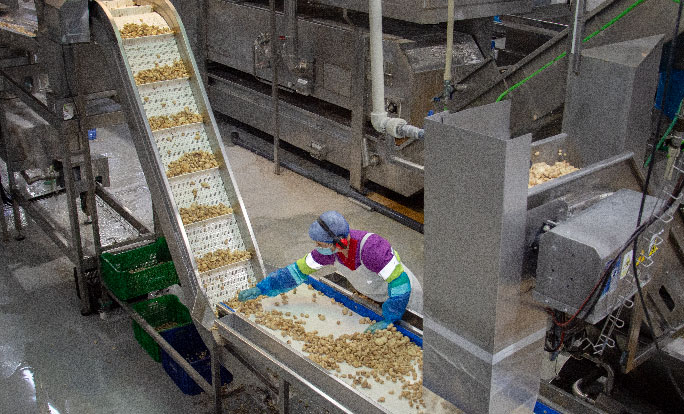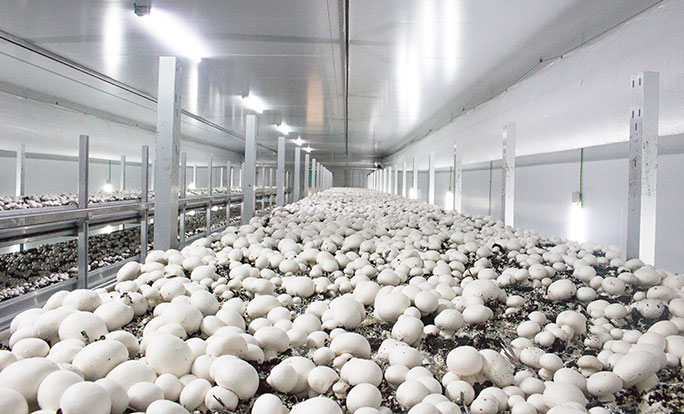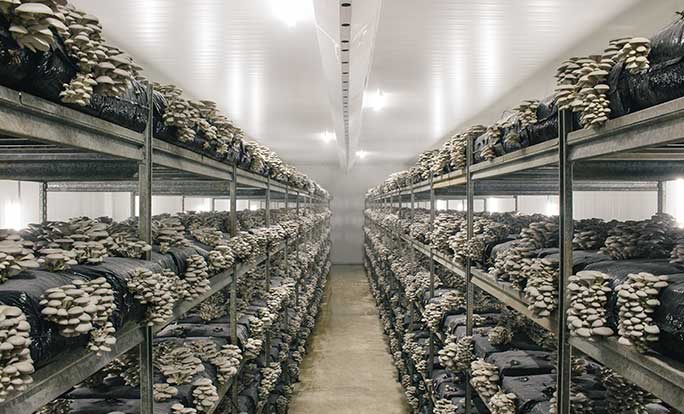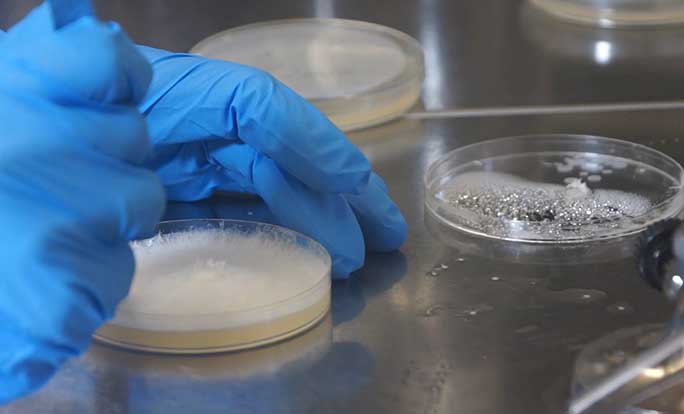WHAT IS CHAMPINTER
Champinter, located in the Albacete town of Villamalea, in the heart of the region of La Manchuela, has been dedicated since 1977 to the cultivation and marketing of mushrooms, mushrooms and other edible fungi, and is currently the first-grade cooperative with the highest turnover in Castilla-La Mancha, which led to its recognition by the regional administration as a Priority Associative Entity of Regional Interest (EAPIR).
Champinter markets more than half of the fresh mushrooms consumed in Spain through large supermarkets and wholesale markets.
On a social level, Champinter is a structuring agent of the territory, providing direct employment to nearly 400 workers, committed to stable, sustainable and equal employment for men and women.
For decades, Champinter has been committed to innovation and environmental sustainability, through the use of renewable energy, efficient water management and its circular economy processes, which complete the cycle from production to transformation and distribution through its factory.
It is already nearly half a century of experience creating quality jobs and contributing to the economy of the region, the region and the country.
CHAMPINTER CONSERVES AREA
Factory recently refurbished in order to meet all the quality parameters required both in terms of legislation and compliance with the customer’s quality standards. Facilities located in Fuentealbilla, 6 km from Villamalea, on a surface area of 20,000 m2, of which 12,000 m2 are covered and house the facilities and rooms necessary for the production of preserved mushrooms and mushroom products.

In our compost plants we carefully process the right substrate for the cultivation of mushrooms and mushrooms. In addition to the existing plants, we now have a new mushroom composting plant equipped with the latest technology, where a new compost, the hatching compost, will be produced to ensure the quality of the product throughout the year.

MUSHROOM PLANT
MUSHROOM PLANT
In our mushroom composting plant we carefully process the right substrate for mushroom cultivation.

CHAMPINTER FACILITIES

SEED CREATION
Champinter has a mycelium laboratory, a centre for the production of seeds, mainly mushrooms and some mushrooms, as well as for research into new seeds. In the laboratory, the mycelium (the vegetative part of the mushroom) is supplied with the necessary nutrients. At the same time, the cereal is conditioned and joined to the mycelium when it is in optimum conditions, cooking it to provide it with the right degree of humidity, bagging and sterilising it to pass it to a cold chain in order to preserve the mycelium. Work is carried out with mother strains and a mycelium library is available with different varieties for the development of substrates and mycelia.
WAREHOUSE
In the warehouse, the crop produced by the members is collected and selected (washed and unwashed) to be sent for fresh bulk, fresh packaging (whole or sliced) or canning. In this centre we plasticise, label and mark our clients' references in order to finally dispatch the product. The product destined for canning undergoes a foot cutting and calibration process at this stage of supply.
LOGISTICS
Champinter guarantees a responsible and sustainable supply, using by-products that can be waste for livestock farms, such as poultry manure, or by-products derived from cereal harvesting, such as straw. It ensures that these by-products are used as raw material to produce edible mushrooms, which results in a guarantee of sustainability, improving global competitiveness and leading new patterns of relationship with our supply chain. The compost is transported from the plant to the farms of our partners and at the same time the exhausted compost is removed. Fresh mushrooms and mushroom cultivation is collected from the farms for preparation in the warehouse and cannery, dispatched and sent to the customer with our own fleet and transports sent by the customer. In addition, the portable shelves of the plants are maintained and adapted for their correct use.

